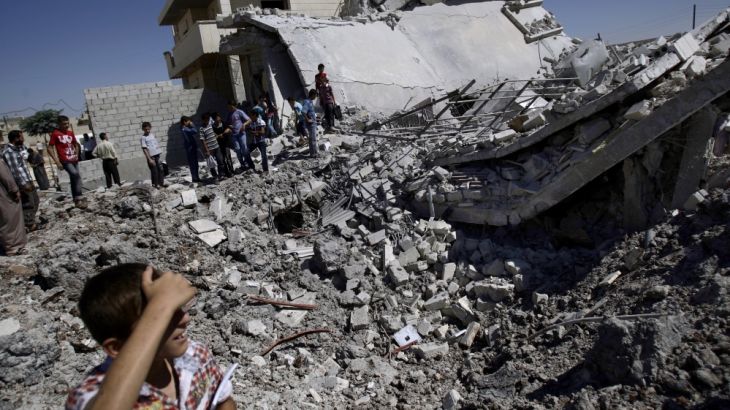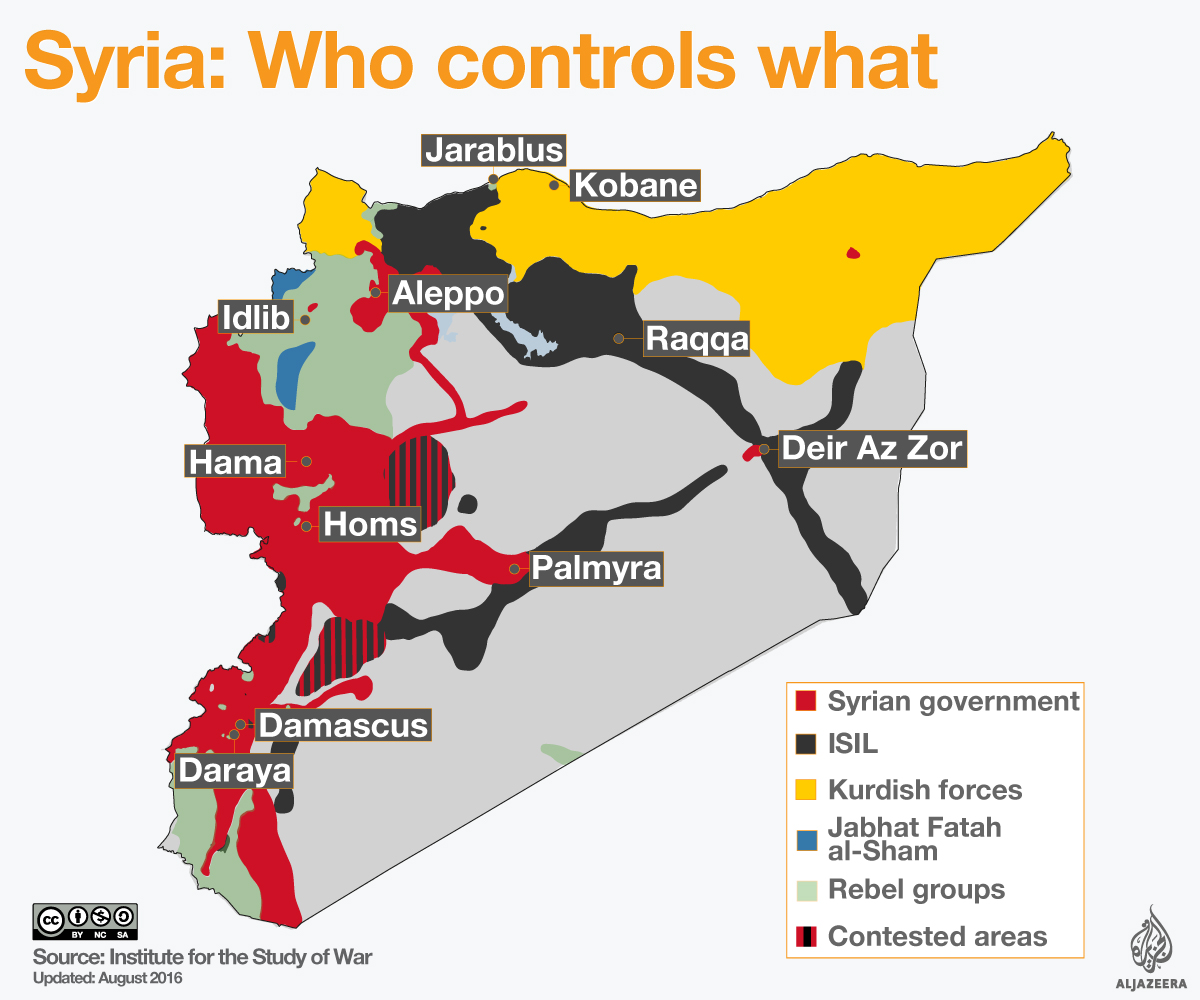Syria’s civil war: US and Russia clinch ceasefire deal
US, Russia hail breakthrough to put peace process back on track, including nationwide ceasefire effective from Monday.

The United States and Russia hailed a breakthrough deal on Saturday to put Syria’s peace process back on track, including a nationwide ceasefire effective from sundown on Monday.
“Today, Sergey Lavrov and I, on behalf of our president and our countries, call on every Syrian stakeholder to support the plan that the United States and Russia have reached, to … bring this catastrophic conflict to the quickest possible end through a political process,” US Secretary of State John Kerry said.
Keep reading
list of 4 itemsVladimir Putin sworn in for fifth term as Russian president
What’s at stake in Chad’s presidential election?
Why South Africa’s opposition may struggle to unseat the ruling ANC
Russian Foreign Minister Lavrov said that despite continuing mistrust, the two sides had developed five documents that would enable coordination of the fight against armed groups and a revival of Syria’s failed truce in an enhanced form.
“This all creates the necessary conditions for resumption of the political process, which has been stalling for a long time,” Lavrov told a news conference.
READ MORE: Syria ceasefire deal explained
The two powers back opposite sides of the conflict, with Moscow supporting the government of President Bashar al-Assad and the US behind a coalition of rebel groups.
If Russia is able to pressure Assad to respect the ceasefire for a week, Moscow and Washington will set up a joint coordination unit and begin air strikes against agreed targets.
“We will jointly agree on strikes against terrorists to be carried out by the Russian and American air forces. We have agreed on the zones in which these strikes will be carried out,” said Lavrov.
Marathon talks
The much anticipated – if tentative – breakthrough came at the end of marathon talks between Lavrov and Kerry in Geneva, as the pair pushed for an end of the five-year civil war.
“Today, the United States and Russia are announcing a plan which we hope will reduce violence, ease suffering and resume movement towards a negotiated peace and a political transition in Syria,” Kerry said.
The vexed question of Assad’s fate remains, with Western powers calling for his removal and Russia backing him.
But both Kerry and Lavrov said the complex plan represents the best available chance to end the fighting between the government and the mainstream opposition rebels, while still targeting Jabhat Fatah al-Sham (the group formerly known as the al-Nusra Front) and the Islamic State of Iraq and the Levant (ISIL, also known as ISIS) group.

Key to the deal is the withdrawal of Syrian government forces around rebel-held Aleppo, allowing desperately needed humanitarian access to besieged communities.
The High Negotiations Committee, an umbrella group of the Syrian opposition, on Saturday welcomed the deal, saying it hoped it would bring relief to hundreds of thousands of civilians.
“We hope this will be the beginning of the end of the civilians’ ordeal,” HNC spokeswoman Bassma Kodmani said. “We welcome the deal if it is going to be enforced.”
Russia also needs to persuade the Syrian air force to stop strikes on anti-government positions, which have also killed large numbers of civilians.
In turn, Washington has to get the opposition groups it backs to separate themselves from Jabhat Fatah al-Sham, which has allied itself with a range of rebels at different points in the fluid conflict.
Only if commitments by Moscow and the Assad government to cease violence for seven days are “fully met” will the US and Russia start cooperating with joint strikes, the Pentagon said in a statement following the announcement.
Lavrov cautioned that Moscow could not “100 percent guarantee” that all the parties would obey the ceasefire.
“The Syrian Government has been informed by us about these arrangements, and it is ready to fulfil them,” he added.
‘Window of opportunity’
A truce agreed in February and endorsed by the United Nations Security Council has been repeatedly broken by both sides.
The final hours of the talks dragged out as Kerry contacted US President Barack Obama’s office to get approval for the plan, but the top diplomat said both governments stand behind it.
“The United States is going the extra mile here because we believe that Russia and my colleague have the capability to press the Assad regime to stop this conflict and come to the table and make peace,” Kerry said.
The UN’s Syria envoy Staffan de Mistura described the deal as a “window of opportunity”, and said he would discuss with UN Secretary General Ban Ki-moon when stalled political negotiations can restart.
Pro-government forces have taken back a strategically important district on Aleppo’s southern outskirts, rolling back nearly every gain from a month-long rebel offensive there.
The government advance further sealed off Aleppo’s opposition-held eastern districts, and government troops backed by the Russian air force have completely encircled opposition-held neighbourhoods, leaving the civilian population completely cut off.
In another major blow to the rebels, the military commander of Jabhat Fatah al-Sham, the largest rebel alliance, was killed in an air strike, rebel sources said on Thursday.
“Rebels are now back to square one, under an even more ruthless siege,” Rami Abdel Rahman, head of the UK-based Syrian Observatory for Human Rights, told AFP news agency.
In Aleppo, once Syria’s economic powerhouse, which has been ravaged by the conflict that began with anti-government protests in March 2011, desperate civilians described a battle for survival.
The conflict has so far claimed an estimated 400,000 lives, according to the UN special envoy for the Syria crisis Staffan de Mistura. Millions of others have been displaced.
|
|